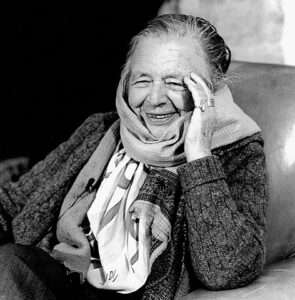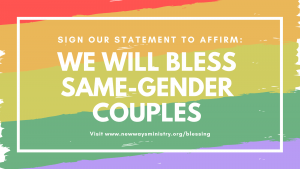LGBT Paris : Paris is one of the world largest LGBT+ cities like San Francisco, New York, London, Berlin… with an incredibly diversity of art, sightseeing, history, shopping, dinning, nightlife and entertainment. In addition, France has a well developed legislation regarding the LGBT+ rights. Looking for a custom-made trip to Paris ?
Table of Contents
Toggle
What to do for the LGBT+ in Paris
Paris travel planner, PARIS BY EMY offers personalized trip : Paris full stay itinerary, custom-made private tours in Paris with expert local Guides hotel pick up, Paris hotels recommendations, reservation for Paris restaurants, optional with greeter Paris airport hotel transfer, and private car services for Paris or outside,…
LGBT+ Parisian Experiences
What you should do :
- The annual pride, la Marche des fiertés, in June since 1999
- Ladies-only bar and nightclubs
- Gay-friendly bars, gay bars, and gay nightclubs,
- Gay-friendly restaurants and Michelin star restaurants in the Marais
- Gay-friendly hotels in the Marais district
- Paris Shopping in the great BHV Le Marais Department store and designer’s boutiques
- Chez Michou Cabaret in Montmartre for some true kitsch drag entertainment.
- Gay memorial stone the last persons to be punished in 1750 for homosexuality intersection of Rue Montorgueil and Rue Bachaumont and more. The City of Paris commemorates the missing figures of the LGBT + movement. Commemorative plaques have already been established, the Mark-Ashton garden, the Claude-Cahun alley, the Coccinelle promenade, Harvey-Milk, Place des Riots de Stonewall, Place Ovida-Delect, Rue Pierre-Seel or the Gilbert-Baker plaque.
- Saint Eustache Paris church houses a moving triptych by Keith Haring, representing the life of Jesus (1990). The American gay activist artist had a craving for spirituality at the end of his life and realized dozens of Jesus life art pieces, dispatched across the world as he wanted it to be.
- The Louvre Museum offers thousands of Greek and Roman Antiquities, Renaissance, classical, neoclassical or romantic paintings and sculpture. Many of them celebrate the beauty of the male and female body. Many representations of nudes are often homo-erotic. Among those masterpieces, make a stop for Sleeping hermaphrodite in the Greek, Etruscan, and Roman Antiquities department. Because the Naiad falling in love with Hermaphroditos, and not having been able to make him sensitive to her charms, prayed gods to unite their bodies so much, that they became only one with both sexes.
Have a look at bespoke PARIS BY EMY Tour Package page for more information. You can explore Paris in a variety of experiences personalized to your interests. Indeed, you discover the essence of the city through an immersive journey upon your profile and each client’s preferences.
The Marais district and the LGBT+ Paris
The centrally located Marais district is THE LGBT Paris place to explore, with Pigalle in Montmartre. Indeed, in the early 1900s, gay people gathered in Montmartre and Pigalle. In the mid-20th century the gay Paris moved to Saint Germain des Près in the 6th arrondissement, and by the 1960s it had shifted to Rue Saint Anne, in the 1st and 2nd arrondissement.
Situated on the Right Bank of the Seine, enjoy a Marais district private tour and its worldwide fame. Between its bourgeois Bohemian Parisians, the LGBT Paris, the Jewish quarter, the Pompidou Centre, the charming Place des Vosges, fancy restaurants, fashion boutiques, and a wealth of history, Le Marais is a fascinating district for everyone.
The Marais became the LGBT center of Paris in the 1980s. Before, the Marais was far from rainbow flags. Originally, the Marais forms, as its name indicates a Marais ( a swampy zone) a vast marshy area between the Roman road (rue Saint-Martin) to the west, the Seine to the south and the old arm of the river following the Arsenal basin to join the Place de l’Alma river. This space included some unsinkable mounds on which stood the Merovingian churches Saint-Gervais and Saint-Paul. Many religious communities settled in the Marais, close by Notre Dame cathedral. In the 12th century, the Knights Templar established a fortified church there.
In the 14th century, the eastern part of the Saint-Paul district hosts aristocratic hotels. Saint-Paul hotels became royal residence inhabited by kings Charles VII, Louis XI, Charles VII, Louis XII and François Ier. Henri II had work done there by the architect Philibert de l’Orme, before he was killed during the jousts of 1559. His widow, Queen Catherine de Medici, abandoned the hotel which was gradually demolished. Henri IV had the place des Vosges built on its site. Socialite but also Christian quarter, it has been a paradise of aristocratic and religious architecture for centuries.
LGBT+, Jewish community and Arty network
Nowadays, The Marais is probably the trendiest part of town, LGBT Paris community, Jewish community and Arty network. This district is one of the most frequented by the capital. It possesses numerous museums (Pompidou Museum, Picasso museum, Carnavalet Museum (history of Paris), la Maison Européenne de la Photographie, Fondation Henri Cartier-Bresson, Victor Hugo’s house…). The visit of the magnificent square (place) des Vosges constitutes the highlight of a promenade for its little park, architecture, palace, arcades, boutiques and restaurants. La rue des Rosiers, epicenter of the Parisian Jewish community, is to discover with the Museum of art and history of Judaism and the Shoah Memorial with the wall of names. The Marais abounds in fashion shops, in luxury, in restaurant bar addresses, in art galleries. The Marais is also the biggest LGBT Paris district and the biggest of France.
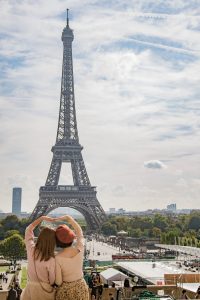
A little bit of history for LGBT+ Paris
LGBT before the 18th century
Until the end of the 18th century in France, laws ranked homosexual relations among crimes deserving death. Sentenced to death, homosexuals were strangled and then burned. In Europe, homosexuality was only allowed to the aristocracy, kings and their royal court. For example, King Henri III, fourth son of King Henry II and Queen Catherine de Medici in the 1500s was more interested in his male entourage than his own wife. With his mother, they had a strong responsibility of protestant St. Bartholomew’s Day massacre in 1572. Philippe d’Orléans (1674-1723) brother of King Louis XIV, the Sun King of Versailles, was well known for his penchant for men. He lived a love story of more than 30 years, in full view of everyone with the Knight of Lorraine.
LGBT and the French Revolution
July 6, 1750 takes place the last French public execution for reason of homosexuality, in Paris. The French Revolution decriminalized homosexual relations as early as 1791. However, homosexuals and transvestites were subjected to police harassment because of the laws on sexual exhibition and sexual harm against minors.
LGBT during World War II
In 1942, the Vichy regime introduced for the first time different sexual majorities for heterosexual and homosexual relationships (this discriminatory legislation remained in force until 1982). Moreover, deportation of homosexuals was widespread during the Second World War, by the Third Reich, the Nazis. Gay men, and to a lesser extent lesbians, were persecuted by the Nazis and were ultimately among the victims of the Nazi regime’s deportation policy. A 2009 study estimates that between 5,000 and 10,000 homosexuals were sent to Nazi concentration camps. It is difficult to establish how many of them perished there. Homosexuals were treated, in fact, in a particularly cruel manner by guards in concentration camp. This explains the particularly high case fatality rate for homosexuals in concentration camps. LGBTphobia often goes hand in hand with xenophobia, anti-Semitism and racism, with nationalist and anti-democratic policies.
Nowadays for LGBT+
In France, protection against discrimination on the grounds of sexual orientation was introduced into law in 1985 and homophobic insults have been penalized since 2004. Nowadays, Jewish community and LGBT Paris community live and blossom together in the Marais, district of the City of Lights when there was a time, not too long ago, they were both persecuted and sent to concentration camps. The Marais is a historic Parisian district located in most of the 3rd and 4th arrondissements of Paris, on the right bank of the Seine. In 1964, notably reinforced by the cultural and artistic impact that the Marais festival represented at the time, André Malraux (Minister under de Gaulle and Pompidou) made the Marais the first “safeguarded sector” governed by a safeguard and enhancement plan (PSMV) 11 and home to many museums and historic places of memory with exceptional architecture. Many art galleries have been set up in the Marais, particularly since the reopening of the Picasso Museum in 2014 following renovation works and many French designers, cafés, restaurants, fashion, luxuary boutiques and many multi cultural institutions as well. Together, in peace and respect.
Famous LGBT people in Paris
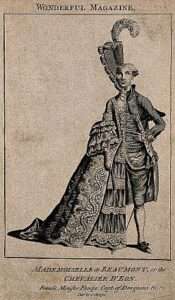
- The Chevalier d’Eon at the court of Versailles.
It is in a very classic way that Charles de Beaumont, knight of Eon, lived his youth in the 18th century in France. Coming from an aristocratic family, lawyer, the network he then established in Paris allows him to integrate the “black cabinet” of King Louis XV. Concretely, Charles de Beaumont began a career as a diplomat and spy. Between Saint Petersburg and London, he grimes himself and dresses as a woman, out of necessity but also for pleasure. He ended up defining himself as a woman and even appeared at the court of Versailles in 1777 in a basket dress and corset with the king’s blessing in person. In his autobiography, however, he was more ambiguous, explaining that he was born with the hidden sex and that the doctor had been unable to define his sex. His autopsy report, after his death in 1810 at the age of 81, is clearer, the “old lady” has “male organs (…) perfectly formed in all respects”.
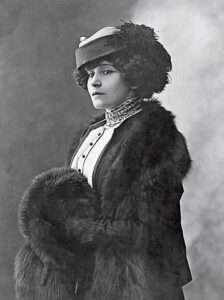
- Colette (1873-1954)
is a famous French woman of letters, actress, and journalist. She is one of the most famous international novelists of French literature, second woman elected (unanimously) member of the Goncourt academy in 1945, appointed for the 1948 Nobel Prize in Literature, and the second woman in France to receive a national funeral. She was openly bisexual and she got married 3 times. Discover where she used to live and work.
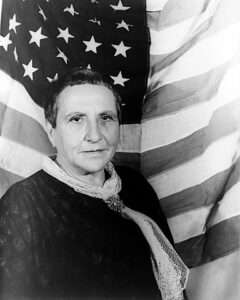
- Gertrude Stein (1874 –1946)
An American novelist, poet, playwright, and art collector, she moved to Paris in 1903, and made France her home for the remainder of her life. She hosted a Paris salon, where the leading figures of modernism in literature and art, such as Pablo Picasso, Ernest Hemingway, F. Scott Fitzgerald, Sinclair Lewis, Ezra Pound, Sherwood Anderson and Henri Matisse, would meet. She had a love relationship with Alice B. Toklas. Ernest Hemingway describes how Alice was Gertrude’s “wife”. Enjoy a walking tour about the lost generation as they called themselves.
- Marguerite Yourcenar (1903-1987)
French woman of letters, she was the first woman elected to the French Academy in Saint Germain. Marguerite Yourcenar published her first novel in 1929, Alexis or the Treaty of the vain combat, which already broached the theme of homosexuality. In 1937, she met Grace Frick, a professor of British literature in New York, who would be her partner until the latter’s death in 1979, following breast cancer. Have a private tour within Saint Germain.

- Oscar Wilde (1854-1900)
was an Irish writer, novelist, playwright and poet born in Dublin on October 16, 1854 and died impoverished in Paris on November 30, 1900. This extra talented Irish writer, was a refugee in Paris from being persecuted and jailed by being gay. He remains at the Père Lachaise Cemetery where his grave used to be full of red lips stick kisses. However, the cemetery decided to surround his grave by windows glasses couple years ago. The ashes of Robert Ross (ex-lover and executor of his estate) were placed there in 1950.
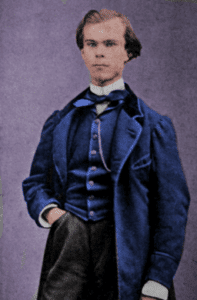
CC BY-SA 4.0
- Paul Verlaine (1844-1896)
Verlaine is a 19th century French writer and poet, born in Metz on March 30, 1844 and died in Paris on January 8, 1896. At 21, Verlaine was in charge of literary criticism in the review “L’Art”, he wrote glowing articles on Charles Baudelaire and Victor Hugo. He tried his hand at poetry and published his first collection, Poèmes saturniens in 1866, at 22 years old. His life was turned upside down when he met Arthur Rimbaud the poet in September 1871. Verlaine left his wife to follow the young poet in England and then in Belgium. It was during these trips that he wrote The Romances Without Words. In 1873, he wounded Rimbaud with a revolver and was sentenced to 2 years in prison, in Brussels and Mons. His wife had requested and obtained a separation, he converted to Catholicism.

- Bambi
Bambi, by her stage name, was a famous review leader in the 1950s, notably at the famous cabaret de la butte Montmartre, Madame Arthur. Born in Algeria in 1935, Jean-Pierre Pruvot “hated his first name”, explains Bambi in a documentary devoted to her in 2013. Once in Paris, she “devotes herself to the stage”, a means of “discovering herself” . Then, in 1958, took the plunge by having surgery. She then becomes Marie-Pierre. At 33, she left the entertainment world, studied literature and became a French teacher. “What is important is that people know that we have our dignity, that we want to live in society with no less ease than the hetero world, that we want to be known for our identity gender without causing sidelining, “she explained in 2015.
Book Your LGBT+ Private Tour in Paris
Share a few details about your visit, and we will create a personalized private tour in Paris with a licensed guide, tailored to your interests, and schedule, revealing Paris behind its iconic landmarks.
LGBT Paris and LGBT rights in France
From the vibrant La Marche des fiertés parade to the rainbow-washed Marais district, Paris is a safe place for LGBT+. For more than 40 years, the Marche des Fiertés Parade, lesbians, gays, bis, trans, intersex, queers, friends have been walking in a festive but political atmosphere for Equal Rights, against discrimination, to blossom in their bodies, souls, genders, lives, and families. You can hold hands and you can kiss in public. However, expressing your LGBT identity can unfortunately lead to verbal and / or physical assault :
- On April 30, 2019, the neighbor of Terrence Katchadourian general secretary of Stop Homophobie association, became his attacker. Indeed, while both were walking their dog in Paris, the man, failing to greet, preferred to agonize with insults Terrence Katchadourian. A veritable frenzy of homophobic insults: “” Tarlouze! Fag! “Yells the forties, before the punches rains, sending the victim to the emergency room for a night, in shock, with a damaged eardrum.
- Terrence Katchadourian had been interviewed in a documentary for the TV program “Envoyé Spécial”, where he had denounced the increasing violence against the gay community. And, his neighbor discovered, at this time, the identity of Terrence Katchadourian.
- The neighbor in his forties will go to explain Wednesday June 3rd 2020, at the helm of the 28th correctional chamber of the Paris court, facing his victim, who had filed a complaint as soon as he left the hospital, and obtained lots of supports, nationwide. The mayor of Paris, Anne Hidalgo, was also moved by this aggression. On June 19, 2019 Paris’s Mayor Anne Hidalgo honoured LGBTQI+ icons by renaming four squares and streets after them in the French capital.

Important dates for LGBT France
- In 1998, Bertrand Delanoë is one of the first political figures to have publicly announced his homosexuality 3 years before his election as mayor of Paris.
- Same-sex couples are recognized by cohabitation and the adoption of the Civil Solidarity Pact in 1999.
- Since 2010, transidentity is no longer considered a mental illness when until 1990, homosexuality was considered a mental illness by the World Health Organization. Now, only 8% of French people believe that homosexuality is “a disease that must be cured”. They were 42% in 1975.
- Same-sex couples’ marriage and adoption by these couples were finally adopted by parliament on April 23, 2013 and promulgated in the Official Journal of the French Republic on May 17, 2013. In 5 years, 40,000 gay couples have married.
- In summer 2019, a proposal to the National Assembly in early 2020 to prohibit the use of ‘treatments of no heterosexual orientation’ such as conversion therapy. Punishments would be 2 years’ imprisonment and/or a fine of 30,000 euros.
- September 2019, Opening of Medically Assisted Procreation (PMA) to all women including lesbian couples and single women

LGBT beyond Paris – In Europe and the rest of the world
In 2003, the European Parliament asked all member states of the Union “to abolish all forms of discrimination (legislative or de facto) of which LGBT are victims, in particular with regard to the right to marry and the adoption of children “.
In 2001, the Netherlands was the first to authorize same-sex marriage. This is followed by Belgium (2003), Spain (2005), Sweden (2009), Portugal (2010), and France (2013). In 2017, four new countries legalized same-sex marriage: Malta, Germany, Finland and Austria. Within the European Union, homosexuality is legal in all member states, while discrimination in hiring has been banned since 2000. However, on certain issues, laws diverge. 16 European countries (including 14 from the European Union) recognize same-sex marriage, while 26 (including 22 from the Union) allow civil union for same-sex couples. Regarding the LGBT same-sex couples’ marriage legalization, it encounter some difficulties in Paris, in 2013.
Most governments not only in Europe that reject sexual and romantic ties between individuals of the LGBT identity as a fundamental freedom of man and woman rely on moralistic, pathological and conservative discourse to support their discrimination. The “gay propaganda” law, adopted by Russia in 2013, was condemned as discriminatory by the European Court of Human Rights in 2017. The United Nations Committee on the Rights of the Child has also denounced the law because it “encourages the stigmatization of and discrimination” of LGBT people. However, instead of repealing the law, the Russian government uses it to silence LGBT activists, suppress peaceful protests, and censor online expression. In June 2015 the United States Supreme Court extended gay marriage nationwide: 14 out of 50 states prohibited it. Mexico City was the first to formalize same sex civil union in 2007. Two years later, it legalized marriage, followed year after year by half of the 32 Mexican states. Mexico, Argentina, Brazil, Colombia, Peru and Uruguay recognize same-sex marriage. Taiwan became the first country in Asia in 2019 to legalize same-sex marriage. The same year, in India, the Indian Supreme Court rejected a law banning homosexual relations dating from the colonial era.
- On August 10, 2019, a Gay Pride gathered 2,000 people in central Poland, again insulted by a hundred nationalists and football supporters. A major campaign against “LGBT ideology” is taking place in this Catholic country. The conservative newspaper Gazeta Polska had offered stickers with its July 24 issue. The latter featured a large black cross barring a rainbow, with the inscription “This is an LGBT-free area”. A recent Constitutional Court decision also authorized traders/shopkeepers to refuse to serve LGBT + customers, citing “freedom of conscience”.
- In summer 2019, Monsignor Amvrosios, a Greek Orthodox bishop sentenced in January for “inciting homophobic violence” has left office after more than four decades in office. The prelate, whose real name Athanassios Lenis, who willingly appears with the leaders of the Greek neo-Nazi party Golden Dawn, was known for his obscurantist diatribes. In 2015, he called homosexuals “dregs of society”, called to “spit on them” and “blacken (beat)” in an address written to his followers, also published on the Internet.
LGBT+ Paris France Survey from SOS homophobie
According to the public opinion in polls regarding LGBT not only in Paris, French are very favorable for same sex marriage in a large majority. In addition, Parisians are very open-minded regarding the LBGT+. In Paris and France overall, there is not a high level of homophobia. However, homophobia has increased significantly since 2015 (+ 44%), even if it did not reach the records of 2013 and 2014 (we were then in the midst of a debate on same sex marriage legalization). This development is a concern, but it does not mean that homophobia is exploding. 231 physical assaults have been recorded in 2018, up 66% compared to 2017 according to SOS homophobie publishing every year a report. SOS homophobie is an association law 1901, among others, to fight against discrimination and assaults of a homophobic and transphobic nature. Created on April 11, 1994 and Paris based, it has developed territorial delegations to ensure the relay of its actions to fight against homophobia and to fight for equal rights. Do women find it harder to testify to homophobic attacks than they experience than men? This is the case, observation made by SOS Homophobie. The first study on lesbophobia in France was conducted in 2017, again, by SOS Homophobie. The acts of violence against lesbians increased by 47% in 2019 compared to 2017. This is probably not a coincidence, there is a link with the debate on opening to all women (lesbian couple and single women) in France in September 2019. In addition, lesbian women lack a “specific model” as the “me too” and “balance ton porc” movements for women rights.
According to a recent IFOP survey in 2019, in the majority of cases, the aggressor is a man (78%), under the age of 30 (75%), who acts in the presence of a group (61%), even though few victims say they have been attacked by several people at the same time (21%). Verbal attacks of a homophobic nature are more frequent than those of a racist nature. The proportion of victims of homophobic attacks varies according to the degree of assertion of their sexual identity. In detail, 25% of lesbians and 22% of bisexual women were exposed to some form of aggression during the year compared to 14% of gays and 15% of bisexual men. The victims also describe their persecutors as men of developed physical strength and aggressive behavior, the study notes. Among the respondents, 2% present their attacker as a black person, 4% white, 6% speak of an Arab or Maghreb person. These characteristics, which they were invited to specify freely, only come in sixth position. According to the study, in the past 12 months, the number of victims of physical violence doubled between June 2018 (3%) and April 2019 (7%). The trend is stable concerning insults (29%), destruction of property (21%) or even touching of a sexual nature (22%). More worrying: 60% of them admit to having thought of committing suicide. In total, more than 1 on 2 LGBT people (55%) report having been the victim of homophobic assault in their lifetime. The interior ministry said “a 36% increase in the number of victims of anti-LGBT acts”. Data that shows a continuous increase in these crimes and offenses in 2019. In detail, violence – physical and sexual – concerns 28% of complaints. Insults and contempt represent 33% of recorded offenses, the interior ministry’s statistics service said. In particular, many threats and insults were noted online when the medically assisted procreation for lesbian women couples and single women was accepted in France.
In 2020, everywhere in France, in the streets, in Parliament, online, in the workplace or in life, LGBTIphobic insults and violence continued. The significant increase in physical attacks reported in 2018 has not reversed, quite the contrary. Reports of assault on transgenre people in particular have more than doubled in one year (+ 130%).
In 74 countries around the world, homosexuality is still considered a crime punishable by law. 10 years ago, this figure was higher with 93 countries. A total of 12 countries provide death penalty for homosexuality, in Africa and the Middle East: Afghanistan, Saudi Arabia, Brunei, United Arab Emirates, Iran, Mauritania, Qatar, Nigeria, Pakistan, Sudan, Somalia and Yemen. Among the 12 countries where homosexuality is synonymous with death penalty, 7 introduce the death penalty under Sharia law. This is the case of Iran, which in 2016 executed Hassan Afshar, accused of having sex with another young person. He was 17 years old. Being LGBT in Paris, France is absolutely different.

LGBT Paris protest of legalized same sex marriage in 2013
In 2013, Paris had very bad press when thousands, mainly a small minority conservative Catholics marched, sometimes with violence, in protest of legalized same sex marriage against LGBT in Paris including homoparentality, mostly supported by members of the right and the far right. The 3 monotheistic religions members were also involved together against the marriage and adoption for same-sex couples. To them, marriage and adoption, created to protect the child and give him a family cannot be “open” to people of the same sex. This protest was also the subject of many criticisms such as homophobia and instrumentalization of children. Exposing their offspring during protests leads to the inevitable dangers of a large-scale political rally in conditioning young people even before they have acquired a minimum of maturity to analyze their own sexual identity. Moreover, it has a terrible negative impact on children who are LGBT and/or have LGBT parents, parents who have LGBT children and on LGBT adults as well. In the same vein and following the violent demonstration of March 24, 2013 certain media (such as Le Plus, Le Huffington Post or Rue89) evoke the use, by demonstrators, of children placed in the front line facing the CRS (French National Police). Children didn’t have to be in these protests said French bishop Di Falco. Many public figures in favor of same sex marriage have been harassed by Manif pour tous activists who have been condemned. Dominique Venner, far-right essayist and opponent of gay marriage committed suicide in Notre-Dame cathedral in May 2013, a terrible drama. Homophobia and physical assaults in France broke records in 2013 and 2014.
1 John 4:7-8 7 Beloved, let us love one another, for love is from God, and whoever loves has been born of God and knows God. 8 Anyone who does not love does not know God, because God is love.
How the Catholic Church and the LGBT Community Can Enter Into a Relationship of Respect
However, lots of parishioners, religious, priests and bishops not only in France have the will to change mentality towards the LGBT+. James J. Martin SJ, an American Jesuit priest, is one of them. He has been viciously attacked for his outreach to LGBT+ persons and LGBT+ Catholics in particular by some conservative and traditionalist Catholics. Those conservative consider being LGBT+ as a sin. By the way, we are ALL sinners. Nobody is perfect. (Questions : Is it a choice to be LGBT ? What about the bisexuals are they half sinners ? Is the Church asking them for celibacy and chastity like it does for gay and lesbian ? What about the transgenders ? When a gay or lesbian couple want to baptize their child, what is the priest going to say ? If the godmother or godfather is a Catholic LGBT, what is the priest going to say ? What about homosexual priests who gave their life to serve the Christ and Church exactly like heterosexual priests ? What about judgment, conviction, exclusion, discrimination within the Church ?). The unwillingness to acknowledge the other as a brother or a sister but to see him/her as an ennemi, a danger as a slave, an inferior leads you to the path of death. Many of conservative belong to the small but loud Francis opposition, close to fundamentalist ideologies, far away from realities and above all far away from the law and message of God. God is LOVE. God loves all His children, from an unshakable bond.
God created you, God loves you
January 2021, American Catholic bishops, archbishops, even a cardinal sign statement to LGBT youth: ‘God created you, God loves you.’ A former high school teacher, Archbishop Wester said bullying can be especially toxic for young people who are trying to come to terms with their sexual orientation, especially when either they or others misinterpret church teaching on homosexuality to convey the notion that being gay itself is sinful. The Catholic Church teaches that homosexuality is “objectively disordered” and condemns sexual acts between people of the same sex as sinful. But at the same time, it says that gay people “must be accepted with respect, compassion, and sensitivity. Every sign of unjust discrimination in their regard should be avoided.”
Archbishop Wester said that he signed the statement because he wanted L.G.B.T. young people to know “you have worth, you have value and you’re a child of God.”
Bishop Robert McElroy, who heads the Diocese of San Diego, also signed the statement. In 2016, he supported the idea that the church should apologize to L.G.B.T. people for historic mistreatment and calling for church teaching on the topic to use “language that is inclusive, embracing [and] pastoral.”
“As we see in the Gospels, Jesus Christ taught love, mercy and welcome for all people, especially for those who felt persecuted or marginalized in any way; and the Catechism of the Catholic Church teaches that LGBT people are to be treated with ‘respect, compassion and sensitivity,’” reads the statement, released by the Tyler Clementi Foundation, an organization that fights L.G.B.T. bullying in schools, workplaces and faith communities.
The Tyler Clementi Foundation is named for the Rutgers University student who died by suicide in 2010 following an act of online bullying. According to the Centers for Disease Control and Prevention, lesbian, gay and bisexual youth are bullied and attempt suicide at higher rates than their heterosexual peers. Trans students report higher rates of bullying, suicidal ideation and attempts at suicide than non-transgender students. The C.D.C. says schools can help combat suicide by encouraging respect for students and working to reduce bullying and harassment. Read the full article of Americamagazine.org
Pope Francis and its commitment to LGBT Catholics
In September 2019, Pope Francis announced that 10 new cardinals will be promoted on October 5. This religious rank confers great influence on the Church and, for those under 80, the power to vote for the next pope if the current one were to withdraw or die. Among the 10 members of the High Clergy, several are focused on LGBT + issues including Bishop Matteo Zuppi. The clergyman has also always positioned himself as a staunch defender of LGBT + rights. In 2017, he wrote the foreword in the Italian edition of the book of the American Reverend, James Martin: “Building a Bridge: How the Catholic Church and the LGBT Community Can Enter Into a Relationship of Respect, Compassion, and Sensitivity ”.
New Ways Ministry, an American defense association for LGBT + Catholics also celebrated the news of the promotion of Zuppi but also of three other archbishops, also concerned with the LGBT + question: Archbishop Jean-Claude Hollerich of Luxembourg, who had insisted with the Church not to make a connection between “homosexuality” and “pedophilia”; the Reverend Michael Czerny, a Canadian priest who met with LGBT + groups to discuss the decriminalization of homosexuality around the world and created an association for people living with AIDS in Africa; and Archbishop José Tolentino Medonca, Vatican archivist and librarian, who “spoke positively about LGBT + associations in 2010,” according to New Ways.
However, the conservative such as, The Church Militant website, a 501 organization in Michigan, does not hesitate to call Zuppi “a homosexualist” who would have contributed to making the Bolognese archdiocese “a center of leftist politics and LGBT activism”. Crisis Magazine, meanwhile, accuses Matteo Zuppi of having allied with “the infamous” James Martin. The magazine also considers that Zuppi’s appointment is based much more on the loyalty he owes to the Pope rather than on his merit.
During the COVID19 crisis of 2020, on the advice of the parish priest of Torvaianica, a small town about 40 kilometers from Rome, transsexual prostitutes doomed to great misery due to confinement, wrote letters to Pope Francis. And the latter responded by providing them with spiritual and financial support. A very strong blessing and act of grace.
Homophobia has been verified recently in France, during the COVID19 period of confinement. Associations fighting for the rights of homosexuals have been contacted by young people who were in danger with their families, because of their sexual orientation. The public authorities announced an emergency plan, endowed with 300,000 euros. Since then, around 40 young people have been sheltered thanks to a system of hotel nights, deployed throughout the country. The emergency system will be maintained until July 10th, the date of the end of the state of health emergency.
Even before his pontificate, Pope Francis encouraged Christians to go “to the peripheries”, because the poorest and the outcasts have something to tell us about the suffering Christ. Pope Francis invited everyone, people of all faiths to unite in prayer on 14 May 2020 for end to pandemic.
In 2015, it became clear there was a huge disconnect between the papacy of Pope Francis and the administration of Vatican protocols in the United States regarding a meeting between the Pope and Kim Davis, the civil clerk in Kentucky who refused to issue marriage licenses to same-sex couples, and with American archbishop Viganò in particular who organized this encounter of Pope Francis and this clerk, which resulted in a public correction of Archbishop Viganò. In 2018, the same American archbishop Viganò released a blockbuster 7,000-word public letter denouncing Pope Francis while the pope was on his way to Ireland for a historic visit, calling for Francis to resign. “I will not say a single word on this,” The Pope said on his plane trip back from Ireland. “I read the statement this morning, and I must tell you sincerely that, I must say this, to you and all those who are interested: Read the statement carefully and make your own judgment.” Public letters released by Archbishop Viganò since 2018 have included many charges including this recent one of June 2020 : “Archbishop Gregory and others who have objected to President Trump’s use of Christianity’s most sacred symbols as political props are subservient to the deep state, to globalism, to aligned thought, to the New World Order which they invoke ever more frequently in the name of a universal brotherhood which has nothing Christian about it, but which evokes the Masonic ideals of those [sic who] want to dominate the world by driving God out of the courts, out of schools, out of families, and perhaps even out of churches.” Pope Francis has been true to his word since 2018, never once responding to provocations, even as Archbishop Viganò’s accusations have grown more and more absurd and insulting. Pay this man VIGANO no attention.
Couple years ago in Rome, thanks to the personal intervention of Pope Francis, three young children of one Italian gay couple are being brought up in the Catholic faith and even ministering as altar servers.
Pope Francis, Saint-Père François and his conservative opponents
Pope Francis is often considered by Christian fundamentalists as heretic because of his will to reform the Catholic Church. Pope Francis has also to face the most conservative members of the Roman Curia. A group of 19 Catholics from several countries, including a renowned theologian, published an open letter on April 30, 2019, accusing Pope Francis of “heresy”. The document, published by the American site LifeSiteNews, asks the bishops of the world to “act” against the pontiff. The letter was notably signed by the Dominican priest Aidan Nichols, an internationally recognized British author and theologian, reports the American media Catholic News Agency (CNA). The text was also initialed by several professors stationed in Catholic universities, in the United States and elsewhere. Among the French speakers are Georges Buscemi, president of the Quebec Life campaign, as well as Stéphane Mercier, former lecturer at the Catholic University of Louvain, in Belgium. The latter was dismissed from the institution in 2017. The letter further suggests that Pope Francis wore a “satanic” pastoral staff at the opening mass of the youth synod in October 2018. While the letter makes numerous references to the “canonical offense of heresy”, only one of the 19 signatories has a degree in canon law. Father Thomas Petri, vice president of the Pontifical Faculty of the Immaculate Conception in Washington DC, calls the letter “unconvincing”, both in terms of its argument and its consistency. “Beyond the potential canonical implications for the signatories, the text is such a jumble of arguments, that it is not possible to take it seriously,” comments the Dominican. In addition, the transition between Pope Benedict XVI, amazing theologian and conservative to Pope Francis in 2013 was clear. Pope Benedict XVI renounced his papacy and announced it to Pope Francis, Jesuit and very close to poor people one year before, in privacy hoping that Pope Francis will be the next Pope. Pope Francis, urge to support more the poorest, the outcasts and to fight social inequalities, social injustice. It is the clearest and strongest teachings of Christ. Pope Francis wants to reform :
- The way Catholic LGBT are considered within the Church
- The possibility to Catholic divorced people to take the Eucharist
- The married deacons to become priest and preach, celebrate
In addition, Pope Francis wants to emphasize the role of women in the Church as a religious woman, nuns and as Catholic lay women
During his homily in 2019 in honor of the Virgin of Guadalupe, Pope Francis insisted on the “maternity” of Mary, mother of the Church and “of our soul”. As a result, when looking at the role of women in the Church, he said, the path of “functionality” only goes half way. The place of women in the Church “goes further with this Marian principle. The Mother of the Savior never presented herself as a “co-redeemer” but only as a disciple. The Argentine pope added that he liked to think that the Church was not masculine, but feminine. The pope also warned of “two dangers” : First that of “reducing motherhood to a social role” and, conversely “promoting a kind of emancipation which, to occupy the spaces taken by the masculine, abandons the feminine.”.
Pope Francis said in 2013 : “I suffer, I tell you the truth, when I see, in the Church or in certain ecclesial organizations, (…) that the role of service of women slides towards a role of servitude”.
Pope Francis officially enshrined in Catholic law, Monday, January 11, 2021 the authorization for lay women to occupy two functions during religious services. The modification of the “canon law” of the Catholic Church recognizes their right to exercise, during liturgical celebrations, the ministry of “the Word”, which consists in reading the Gospel, and the ministry of “the Acolyate” , assistance at the altar. Until now, the law specified that these mandates could be entrusted to “lay men”. The reference to gender is deleted. This decision actually confirms an existing situation. Women often already exercise these two functions, with the approval of the bishops who are not so conservative.
For the first time, Pope Francis appoints in 2021 woman, Nathalie Becquart, a member of the Xavière Sisters, Missionaries of Jesus Christ, in France, as one of two new undersecretaries of the synod of bishops. As such, she will have the right to vote in the synod. It is the first time this right has been given to a woman in the synod and raises the prospect that the right could be extended to other women participants at future synods.
March 2021, we will bless same-sex unions
The Vatican’s orthodoxy office, the Congregation for the Doctrine of the Faith, issued a formal response to a question about whether Catholic clergy have the authority to bless gay unions. The answer, contained in a two-page explanation published in seven languages and approved by Pope Francis, was “negative.”
The answer was celebrated by conservatives and was obviously upsetting to those advocating for Catholics who identify as part of the LGBT community. It did cause quite a heated discussion within the German catholic church, which according to NBC Connecticut, “has been at the forefront of opening discussion on hot-button issues such as the church’s teaching on homosexuality.”
Reformers had hoped for a more progressive stance from the Vatican under the leadership of Pope Francis. Belgian Antwerp Bishop Johan Bonny lashes out at Vatican over gay unions decree. The conference of Belgian bishops backed Bonny’s concerns, saying LGBT faithful and their families saw the Vatican decree as “exceptionally painful.” The conference urged everyone to work on “a climate of respect, recognition and integration.” – “Intellectually, this does not even reach the level of high school. These kind of arguments, the logic, you see right through it. These days, you don’t convince anyone that way,” Bonny said.
“Nobody must ever be excluded from the pastoral care and love and concern of the church,” said the prefect, Cardinal Kevin J. Farrell, March 18 during an online Vatican news conference, presenting details of the “Amoris Laetitia Family Year,” which starts March 19.
The mother of a gay teen once said to father James Martin, “Does the Vatican realize what the language they use can do to a 14 year old boy? It can destroy him.” It is said that the lines of the Trevor project a suicide hotline for LGBT Youth always light up after the Roman Catholic Church issues statements like this. This is the tragedy of this statement. Moreover, it won’t be bishops or the pope who suffer but families. It angered lots of Catholics around the world.
SHAME ! SHAME ! SHAME ! We, Catholics believe in an unshakable bond between God and his children, we are in inclusing, not exclusing, which is wrong. Reforms will prevail in Catholicism in due time. So, we must keep the Hope of a better greater relationship between the LGBT+ community and the Catholic Church, with respect and love. For LGBT visiting Paris, if you are looking for a church or a priest to talk with, please contact us. We have a great network for LGBT in Paris.
A Brief History of New Ways Ministry
In 1976, Bishop Francis J. Mugavero of Brooklyn, New York, wrote a pastoral letter, “Sexuality: God’s Gift,” which was one of the first Roman Catholic statements to contain a compassionate and encouraging message to gay and lesbian people. Gay and lesbian people deserved to be treated equally in society and the Christian community, he noted, and then he addressed them directly, stating, “. . . we pledge our willingness. . . to try to find new ways to communicate the truth of Christ because we believe it will make you free.”
We are Roman Catholic ministers, theologians, and educators—lay, ordained, vowed—and we stand with LGBTQ people. We are professionals and volunteers. The March 15, 2021 statement from the Vatican’s Congregation for the Doctrine of the Faith which banned blessings of same-gender unions has already caused immense pastoral damage. While this damage is felt particularly by members of the LGBTQ community, the hurt reaches out to the wider arena of other Catholics whose faith has taught them to welcome and affirm LGBTQ people.
Our Catholic faith and tradition compels us to respect and honor the faith journeys of LGBTQ people. We know that those who enter into committed relationships do so out of love which is divinely inspired and supported.
We call on Pope Francis and Vatican leaders to rescind this statement which has caused so much pain and will continue to do so if it is left to stand.
We pledge to continue to find new ways to affirm and bless all LGBTQ people, whether they are single or in a committed relationship.
We ask all Catholics and people of good will to pray that the Catholic Church will continue to accompany LGBTQ people in their faith journeys, to welcome them into their communities, to learn from their experience, and to grow as a church.
When commenting on the Gospel of the day, which recounts that some Greeks wanted “to see Jesus,” Pope Francis said many people today also want to see, to meet and to know Jesus, and so “we Christians and our communities” have “the great responsibility” to make this possible by “the witness of a life that is given in service, a life that takes upon itself the style of God: closeness, compassion and tenderness.”
Francis explained that this “means sowing seeds of love, not with fleeting words but through concrete, simple and courageous examples; not with theoretical condemnations but with gestures of love.” He added that “then the Lord, with his grace, makes us bear fruit, even when the soil is dry due to misunderstandings, difficulty or persecution or claims of legalism or clerical moralism. This is barren soil. Precisely then, in trials and in solitude, while the seed is dying, that is the moment in which life blossoms, to bear ripe fruit in due time.”
If you are a Catholic LGBT, you are welcome to contact us. We know priests, churches and many holy places for you to express and live your Faith as a child of God, in Christ.
He said that “it is in this intertwining of death and life that we can experience the joy and true fruitfulness of love, which always, I repeat, is given in God’s style: closeness, compassion, tenderness.” Read the full article of Americamagazine.org
Father Martin’s outreach to the LGBT community has drawn a strong backlash from conservative Catholics
For many years, father James Martin is preaching how the Church should minister to “LGBT+ Catholics”. As the Catechism explains :
[Those with deep-seated homosexual tendencies] must be accepted with respect, compassion, and sensitivity. Every sign of unjust discrimination in their regard should be avoided. (par 2358)
He rightly denounced the tragic way LGBT+ Catholics and their families have at times been treated in the Church. The stories he tells reveal shameful spiritual abuse of LGBT+ individuals as God’s children. In the US, the Episcopal Church says “yes” to marriage for all in all its dioceses.
Protestant United Church of France authorizes the blessing of same-sex couples
The Protestant United Church of France authorizes the blessing of same-sex couples, with exception from some of the evangelical protestantism who could be even more conservative than the Catholics on certain social issues. Protestants have always accompanied the deep movements of society. This was already the case in matters of sexuality when there was a debate on the contraceptive pill. In the same way, they integrate LGBT identity/reality into their theological thinking. Talking about contraception, father Yves Congar (1904-1995), expert at Vatican Council II, showed intuition when he pointed out the risk of creating “a hiatus, even an abyss, between the pastoral hierarchy and the mass of the faithfuls, many of whom are truly evangelical and generous.” He declared: “I cannot really judge that spouses who have exercised or are exercising a reasonable and generous fatherhood contravene the will of God if, to space or avoid a new birth (intention that Humanae Vitæ recognizes legitimate), use a safer artificial means than periodic abstinence “. He said so after the encyclical “on marriage and the regulation of births” promulgated by Pope Paul VI on July 25, 1968. Yves Georges Congar in civil status and Marie-Joseph Congar in religion, born in Sedan on April 13, 1904 and died in Paris on June 22, 1995, was a French Dominican religious considered as one of the most influential Catholic theologians of the 20th century. Congar is particularly known for his work in ecclesiology and ecumenism. First exposed to suspicion and then to sanctions from the ecclesial authority, he was later rehabilitated, appointed expert at Vatican Council II (1962-1965) and elevated to the cardinalate by Pope John Paul II in 1994. He is one of the most influential Catholic theologians.
Welcome the LGBT in the church’s sacramental life
November 2023, The Vatican announced that transgender people can be baptized and become godparents, as well as serve as witnesses to church weddings. The Vatican’s document stated that transgender people, including those who have received hormone replacement therapy or sex reassignment surgery, can be baptized under the same conditions as other believers.
Additionally, the statement allows for transgender “children and adolescents” to be baptized as well, and added that there is no reason why transgender people cannot serve as witnesses at weddings. The document also specifies that a same-sex couple would be able to baptize a child who had been adopted or born via surrogate providing there is “a well-founded hope that he or she will be educated in the Catholic religion.”
“The Vatican’s affirmation that transgender people should be welcomed in the church’s sacramental life signals Pope Francis’ desire for a pastorally-focused approach to LGBTQ+ issues is taking hold,” said Francis DeBernardo — executive director at New Ways Ministry, a Catholic outreach that aims to build bridges between the Catholic Church and the LGBTQ+ community.
Pope Francis and protestant leaders from England and Scotland denounced the criminalization of homosexuality, calling laws that discriminate against LGBTQ+ people both a “sin” and an “injustice.”
Pope Leon XIV Ushers in a New Era of Inclusivity with Message of ‘Tutti’
On his first day as Pope, Leon XIV made a historic statement from the Vatican that signaled a new era of inclusivity and compassion within the Catholic Church. Declaring the word “Tutti” — meaning “everyone” — he emphasized that all people, including those in the LGBT community, are embraced in the love of Christ without judgment. His message called for an inclusive Church built on respect, dignity, and unity, reaffirming that no one is excluded from the grace of God. Pope Leon XIV’s words set a powerful tone for his papacy, offering hope to many who have long felt marginalized by the Church.
LGBT friendly churches in Paris
LGBT+ Paris one of the world largest LGBT cities
To conclude, I would like to dedicate this page to LGBT Paris visitors, all of those who are fighting and suffering from homophobia, discrimination, racism, hate, violence, crime, persecution, genocide, fear, anxiety, depression, injustice, judgment, unfairness, hypocrisy, poverty, social exclusion, deny and manipulation. As a Catholic woman and holocaust survivor’s grand-daughter, I dedicate this page to all minorities, and my LGBT friends. We are all parts of a whole. Our individual actions, behaviors and mindsets have an impact on our society. Collectively, we can change our society. Collectively, each of us can help to create a gender equal world. A better world regardless your gender, color, religion, or nationality. LGBT Paris history and rights gives us a fabulous view of how we have to move forward.
Get inspirations for your LGBT Paris trip with our What to do in Paris page.


